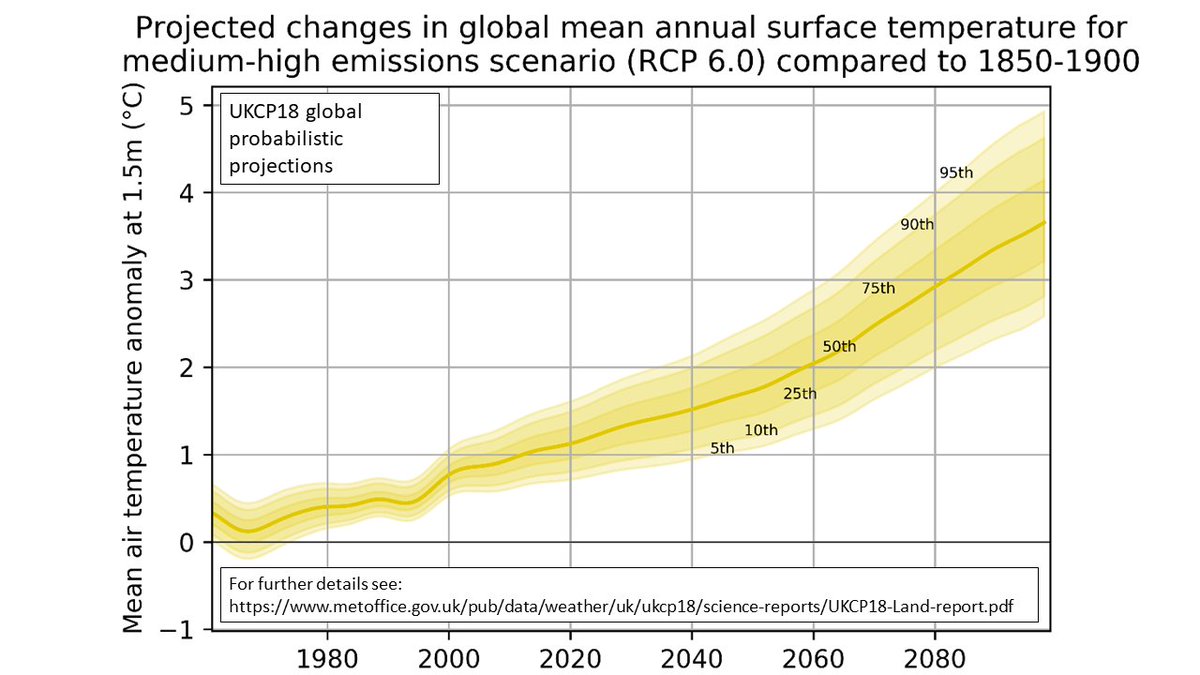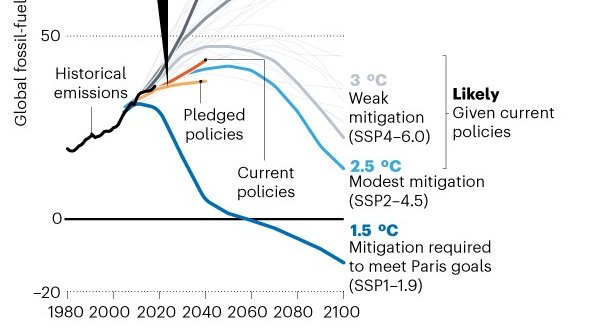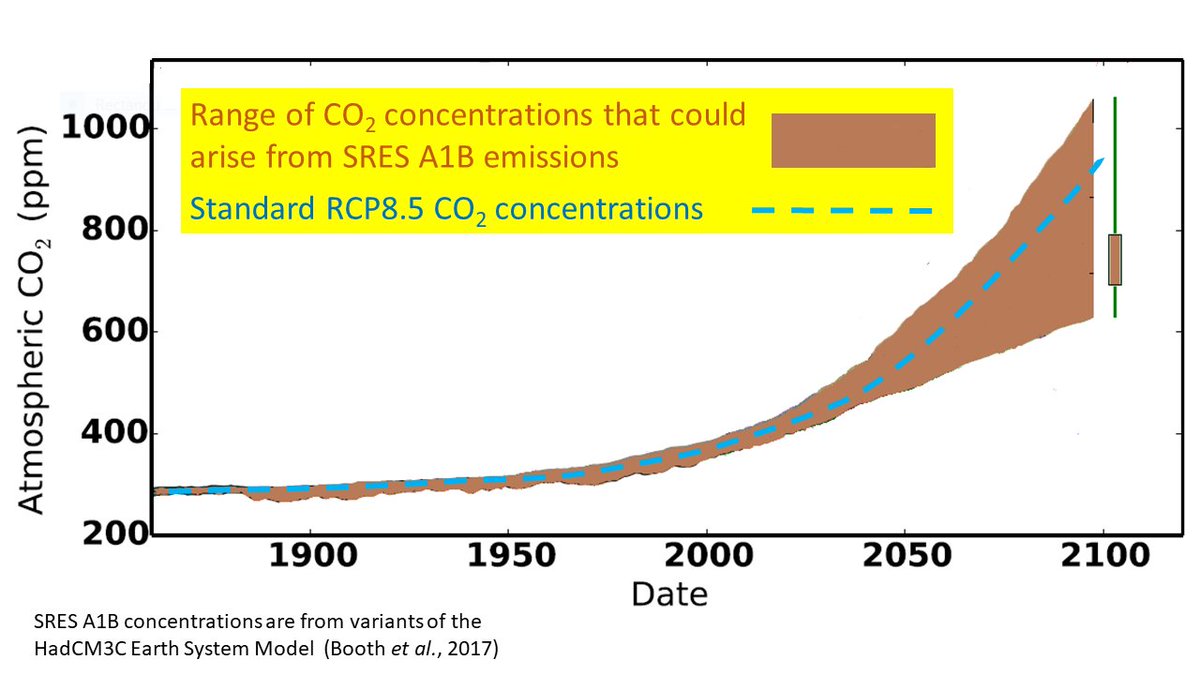
Climate scientist, University of Exeter & Met Office. IPCC lead author, Expert Advisor to Climate Change Committee. @richardabetts.bsky. social
How to get URL link on X (Twitter) App


 @PatrickTBrown31 Link to WG1 chapter 11 "Weather and Climate Extreme Events in a Changing Climate" ipcc.ch/report/ar6/wg1…
@PatrickTBrown31 Link to WG1 chapter 11 "Weather and Climate Extreme Events in a Changing Climate" ipcc.ch/report/ar6/wg1…

 IPCC no longer considers all models as equal
IPCC no longer considers all models as equal



 @clivehbest @HG54 @Leigh_Phillips @CC_NoThanks @XRebellionUK @ziontree @afneil @ScientistsX For RCP6.0 and current policies, see this from the Hausfather & Peters Nature comment
@clivehbest @HG54 @Leigh_Phillips @CC_NoThanks @XRebellionUK @ziontree @afneil @ScientistsX For RCP6.0 and current policies, see this from the Hausfather & Peters Nature comment 



 @hausfath @Peters_Glen This is a very important point (which Zeke and Glen do make, but it seems to get overlooked)
@hausfath @Peters_Glen This is a very important point (which Zeke and Glen do make, but it seems to get overlooked)